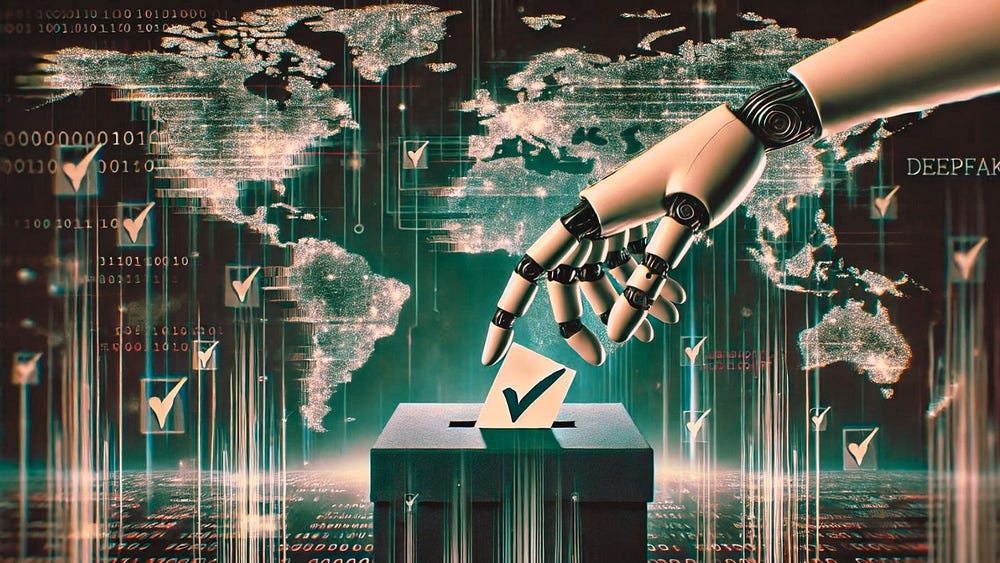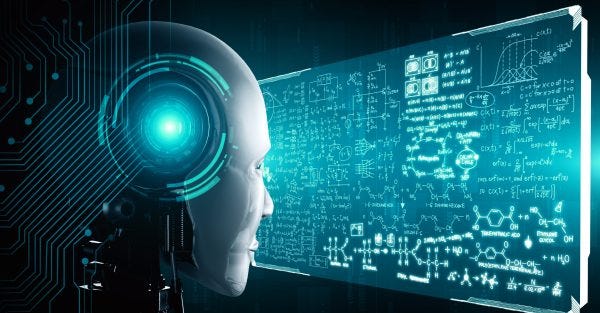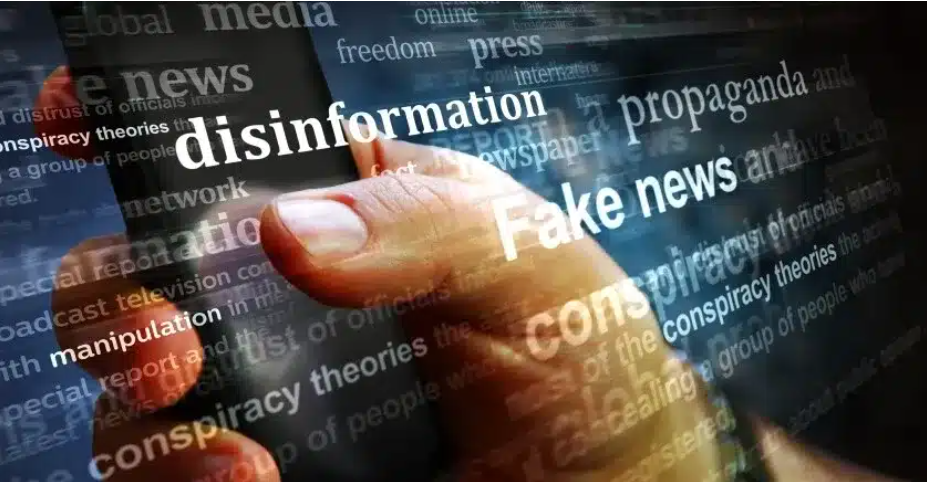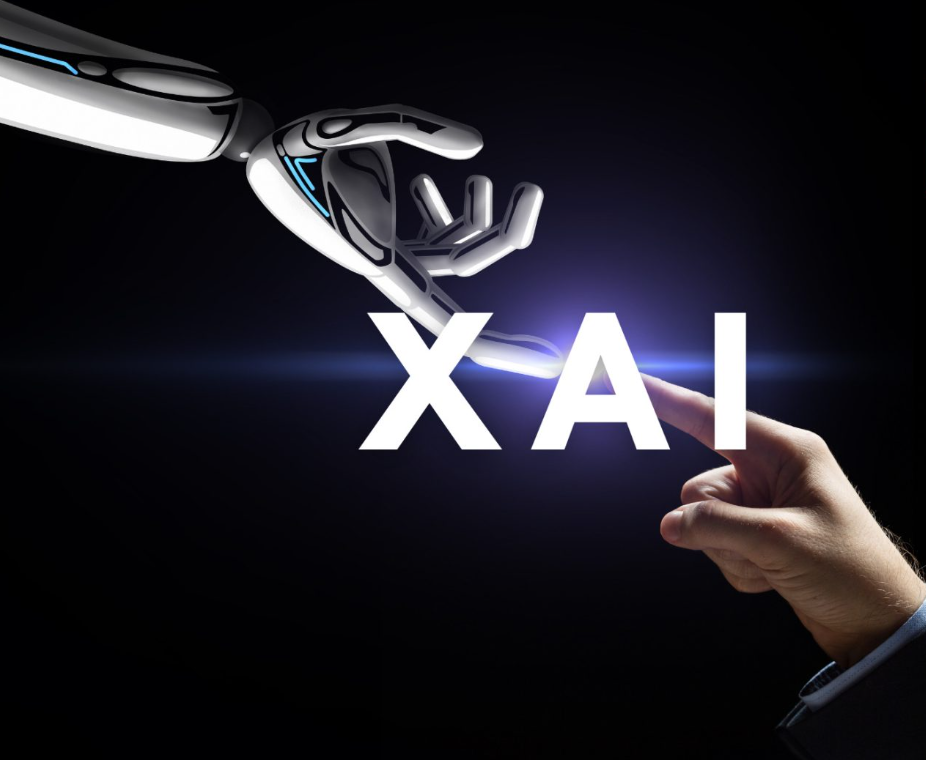AI + Elections: Navigating the Double-Edged Sword of Political Campaigns & Misinformation

The year 2024 has been dubbed the “super election year,” with nearly half the world’s population heading to the polls. This unprecedented electoral activity has coincided with the rapid advancement of Artificial Intelligence (AI), leading to a profound transformation in political campaigning and, unfortunately, a significant amplification of misinformation. AI is no longer a futuristic concept; it’s a powerful force reshaping how political narratives are crafted, disseminated, and consumed.
The Rise of AI in Political Campaigns: Efficiency and Personalization
AI offers political campaigns unprecedented tools for efficiency and outreach. Gone are the days of solely relying on mass rallies and generic advertisements. Today, AI empowers campaigns to:

- Microtarget Voters: AI algorithms analyze vast datasets, including demographics, voting history, social media activity, and even consumer patterns, to create granular voter profiles. This allows campaigns to tailor messages with remarkable precision, addressing individual concerns and interests. Imagine receiving a WhatsApp message from a candidate, referencing a specific government scheme you’ve benefited from, or an ad highlighting local issues relevant to your neighborhood — all powered by AI.
- Personalized Outreach: From AI-powered chatbots answering voter queries to robocalls mimicking local politicians’ voices, AI enables highly personalized communication at scale. This significantly cuts campaign costs, making outreach more efficient and seemingly more personal.
- Content Generation: Generative AI can produce text, images, and even videos from simple prompts, allowing campaigns to churn out a high volume of tailored content for ads, fundraising appeals, and social media posts. This levels the playing field for less-resourced campaigns, allowing them to compete with larger, well-funded ones.
- Predictive Analytics: AI can process massive amounts of polling data and past trends to predict electoral outcomes, helping campaigns optimize resource allocation and strategize more effectively.
The Dark Side: AI as a Misinformation Multiplier
While the benefits are undeniable, the same power that allows for targeted persuasion also makes AI a formidable tool for spreading misinformation and disinformation. The ease and speed with which AI can generate realistic fake content pose a significant threat to democratic integrity:

- Deepfakes and Synthetic Media: AI tools can mimic faces, voices, and actions to create highly convincing fake videos and audio. We’ve seen instances where deepfakes have been used to portray politicians making false statements or endorsing specific agendas, blurring the lines between reality and fabrication. The sheer volume and realistic nature of AI-generated content make it incredibly difficult for the average consumer to distinguish between authentic and manipulated media.
- Automated Propaganda: AI models can generate vast amounts of misleading or false narratives, often operating with minimal human oversight. These narratives can be strategically disseminated across social media platforms, targeting specific voter groups with precision, exploiting emotional triggers and social biases.
- Erosion of Trust: The constant exposure to AI-generated fake news and manipulated content can erode public trust in legitimate institutions, media, and the electoral process itself. This can lead to increased societal division and make it harder for voters to make informed decisions.
- Scalability and Speed: Unlike traditional forms of political manipulation, AI allows for the swift and inexpensive creation and propagation of disinformation on an unprecedented scale, making it challenging for fact-checkers and traditional media to keep up.
Real-World Impacts and Emerging Challenges
The 2024 elections have served as a testing ground for AI’s influence. While the immediate impact on election outcomes may have been limited in some cases, the long-term effects of eroded trust and a distorted information ecosystem are concerning. We’ve seen:
- AI-generated robocalls cloning politicians’ voices to discuss local issues.
- Deepfake videos used to reinforce negative narratives about opposing candidates or evoke nostalgia for past leaders.
- AI-crafted memes and images openly shared by politicians and their supporters to push specific narratives, even if their artificial origins weren’t disguised.
These instances highlight the urgent need for a proactive approach to regulate AI in elections.
Towards a More Resilient Democracy: Regulation and Responsibility
Combating AI-driven misinformation requires a multi-faceted approach involving governments, political parties, tech companies, and citizens:
- Clear Regulations and Disclosure: Several countries and regions are already implementing or considering laws requiring clear labeling of AI-generated content in political campaigns. This includes disclaimers stating that the material is “AI-Generated” or “Digitally Enhanced.” The Election Commission of India, for example, has issued advisories for mandatory labeling.
- Ethical Guidelines for Political Parties: Political parties must adopt ethical guidelines for their use of AI, ensuring that these powerful tools are used responsibly to enhance voter outreach without manipulating emotional responses or spreading false information.
- Tech Platform Accountability: Major online platforms need to develop robust mechanisms to identify and remove deceptive AI-generated content, working in collaboration with election officials and fact-checkers.
- Public Education and AI Literacy: Empowering citizens to be discerning consumers of information is crucial. AI literacy campaigns can help individuals develop a more skeptical and critical mindset, building resilience against misinformation.
- Investment in Detection Tools: Continued investment in AI tools designed to detect and counteract malicious AI-generated content is vital. This creates an “arms race” dynamic, where good actors use AI to combat the problems created by bad actors.
The integration of AI into election campaigns is a significant turning point. While the human element of leadership and grassroots connection remains vital, the efficiency and scalability offered by AI in data analysis, targeted communication, and content generation are proving to be powerful new forces in the battle for votes. The challenge lies in harnessing AI’s potential for democratic empowerment while safeguarding against its capacity for deception. The future of elections, and indeed democracy itself, hinges on our ability to navigate this complex landscape with foresight, robust regulation, and a collective commitment to truth and transparency.
Sources: indianexpress.com, vajiramandravi.com, wikipedia.com, thediplomat.com
Authored By: Shorya Bisht

No comments:
Post a Comment